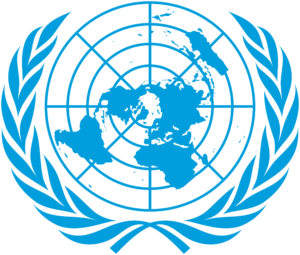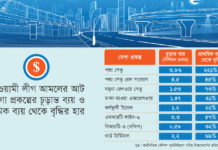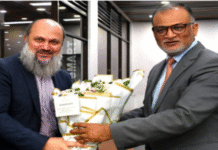 A number of United Nations member states have called upon the Bangladeshi government to ensure voting rights so that the people can elect their leaders in a peaceful manner.
A number of United Nations member states have called upon the Bangladeshi government to ensure voting rights so that the people can elect their leaders in a peaceful manner.
The states also urged the government of prime minister Sheikh Hasina to investigate human rights abuses, including extrajudicial killings and disappearances, and to uphold the independence of the judiciary.
The UN member states made the call at the ongoing 44th session of the Universal Periodic Review Working Group on Bangladesh held in Geneva on Monday.
A large number of UN member states also urged Bangladesh authorities to ratify the International Convention for the Protection of All Persons from Enforced Disappearance, abolish the death penalty, and amend the Cyber Security Act in line with the International Covenant on Civil and Political Rights to uphold freedom of expression.
During the session, they also called up the Bangladesh government to protect journalists, human rights workers, dissenting voices, and civil society members so that they could work and implement the Chittagong Hill Tracts peace accord.
The British delegation said they look forward to a free, fair, and participatory national election next year.
The UK delegation recommended Bangladesh ensure a safe and transparent environment for civil society, human rights defenders, and the media and make sure they exercise their freedom of expression and assembly without any fear or repercussion.
The UK representative also recommended the state ensure full independence of the judiciary from the executive and parliament and continue working with partners at all levels to protect the voice of women and girls.
The delegation of the United States said his country stands with the people of Bangladesh, including marginalised, racial, ethnic, and indigenous communities, and their desire for democracy, human rights, and the rule of law.
The US delegation urged Bangladesh to restore inclusive, transparent, and democratic processes and provide spaces for dissenting voices.
He recommended that Bangladesh protect the ability of its citizens to vote and choose their government by ensuring free and fair elections held in a peaceful manner.
He also called for ensuring that journalists, human rights activists, and labour rights activists are not prosecuted or detained for exercising their rights to freedom of expression, peaceful assembly, or association.
The US also urged Bangladesh to investigate and hold accountable the members of the security and law enforcement agencies who had committed human rights violations and abuses.
The Sierra Leone delegation recommended adopting a convention on stateless persons and ratifying the UN convention on enforced disappearances.
Switzerland recommended that Bangladesh amend the CSA in line with the International Covenant on Civil and Political Rights and ensure safe living conditions for Rohingya refugees in Bangladesh.
Spain, Slovenia, and Slovakia called on Bangladesh to establish an official moratorium on the death penalty pending full abolition.
The Australian delegation was deeply concerned about extrajudicial executions and enforced disappearances.
It recommended accountability and justice for those human rights violations, safeguarding freedom of expression by amending provisions of the CSA that criminalise free speech, and abolishing the death penalty.
The Canadian delegation also called for amending the CSA.
Law minister Anisul Huq told the UPR Working Group that Bangladesh had ratified all core UN human rights treaties except for the Convention for the Protection of All Persons from Enforced Disappearance.
He also claimed that the newly enacted CSA 2023, which repealed and replaced the DSA 2018, would help them protect journalists, women, and others from harassment in cyberspace.
About ongoing labour unrest, the law minister termed it an attempt to thwart ‘democratic processes’ and ‘acts of sabotage.’
A number of countries, including India and China, have recommended improving education and access to health.
Anisul, who led the Bangladesh delegation, told the Bangladesh Review UN Universal Periodic Review in Geneva that there was always room for improvement and claimed that their government was committed to holding an election participatory by the people.
In a quick reaction, the Amnesty International South Asia regional office said their analysis found that the CSA rehashes the same ‘authoritarian provisions’ as the DSA.
Amnesty also rejected the law minister’s ‘mischaracterization’ of workers’ rights protests to be paid a living wage as ‘labour unrest to thwart the democratic process’ and ‘acts of sabotage’.
‘Workers have the right to protest demanding a living wage,’ said Amnesty.
Rights groups have been calling on UN member states to use the UPR on Bangladesh to hold the government accountable for gross human rights violations and the rapidly deteriorating human rights situation ahead of the general election.
Amnesty said on Saturday that at least 466 people were killed in Bangladesh under the guise of an anti-drug campaign after the UPR in 2018.
In the last UPR in May 2018, Amnesty said that the government accepted recommendations to safeguard the right to freedom of expression, but DSA was weaponised against dissenting voices.
Foreign Secretary Masud Bin Momen and Permanent Representative of Bangladesh to the UN Offices in Geneva, Mohammad Sufiur Rahman, among others, took part in the meeting.
Prominent human rights organisations arranged a session on the sidelines of the event following the UN session in Geneva.
A group of expatriate Bangladeshis allegedly created a nuisance at the event and claimed that allegations raised by rights activists were spread to malign the Bangladesh government abroad.
Amnesty later, in a post in X, strongly condemned the verbal attack on panellists, including Adilur Rahman Khan, by pro-government supporters at a UPR side event on Bangladesh co-organising the rights groups.
The 44th session started on November 6 and would end on November 17. The recommendations would be adopted at the regular session in March 2024.
New Age









